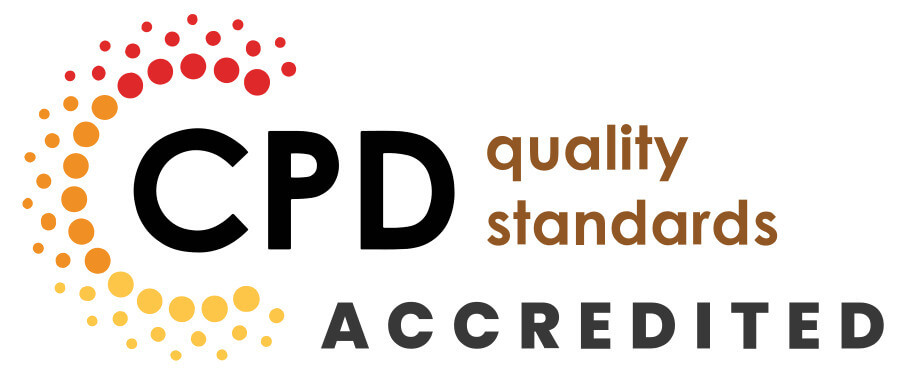4.7
13
127
Students
GET THIS COURSE AND 1500+ OTHERS FOR ONLY £149. FIND OUT MORE
Course Overview
Gear up to get well equipped in The Care Certificate Preparation now, and make up your mind to be the best in the business! All you need is proper training, firm support and a push to shine in your vocation, and Compliance Central is determined to provide you with it all! Explore what you got in this exclusive The Care Certificate Preparation Skills, start learning and excel in it! This amazing The Care Certificate Preparation course has been designed and developed by the industry specialists.! You’ll get to-the-point knowledge both practical and theoretical, and gain valuable insights into the business which will help you understand the drill better than ever! Join today, be skilled, learn with positive energy and enthusiasm, and create an excellent career using your full potential! Brace yourself, enrol now for an amazing venture!This The Care Certificate Preparation Course Package Includes
- Free CPD Accredited PDF Certificate
- Comprehensive lessons and training provided by experts on The Care Certificate Preparation
- Interactive online learning experience at your convenience
- 24/7 Access to the course materials and learner assistance
- Easy accessibility from any smart device (Laptop, Tablet, Smartphone etc.)
- A happy and handy learning experience for the professionals and students
- 100% learning satisfaction, guaranteed by Compliance Central
Assessment
Complete this The Care Certificate Preparation course and sit up for a short online assessment to instantly evaluate your understanding of the subject. The test will be an automated one, your answers will be checked and reviewed then and there, and you’ll get unlimited chances to retake the exam! Our concern is to make you competent for the job that is why you get full support from our part to learn and understand it thoroughly. The test fees are included in the one-time paid course fee. As said earlier, you can retake the exam if you fail an early attempt —you would not be charged any money further for the later attempts.Certificate of Achievement
CPD Accredited Certificate
CPD accredited certificates are available for £4.79 (instant PDF download) or £10.79 (hard copy delivered to you). Our courses are regularly reviewed to ensure they are up-to-date. Certificates do not expire, but it is recommended to review or renew them annually.Endorsed Certificate of Achievement from the Quality Licence Scheme
Learners will be able to achieve an endorsed certificate after completing the course as proof of their achievement. You can order the endorsed certificate for only £69 to be delivered to your home by post. For international students, there is an additional postage charge of £10.Endorsement
The Quality Licence Scheme (QLS) has endorsed this course for its high-quality, non-regulated provision and training programmes. The QLS is a UK-based organisation that sets standards for non-regulated training and learning. This endorsement means that the course has been reviewed and approved by the QLS and meets the highest quality standards.Who Is This Course For
Compliance Central aims to prepare efficient human resources for the industry and make it more productive than ever. This helpful course is suitable for any person who is interested in The Care Certificate Preparation. There are no pre-requirements to take it. You can attend the course if you are a student, an enthusiast or a- Employee
- Employer
- Manager
- Supervisor
- Entrepreneur
- Business Professional
- Company Leader
- HR Professional
Course Currilcum
-
- Aims, objectives and values of the service 00:14:00
- Different Working Relationships in Care Settings 00:14:00
- Employment Rights and Responsibilities 00:16:00
- Responsibilities to the Individuals 00:13:00
- The Duties and Responsibilities of a Care Worker 00:14:00
- The Importance of Partnership Working 00:16:00
-
- Identify Sources of Support for Own Learning and Development 00:16:00
- Skills That Healthcare Professionals Need 00:17:00
- What Is Duty of Care 00:16:00
- Dilemmas That may Arise Between the Duty of Care and an Individual’s Right 00:15:00
- Procedures for Responding to Complaints 00:15:00
- Recognising Adverse Events, Incidents, Errors and Near Misses 00:15:00
- Factors and Difficult Situations That may Cause Confrontation 00:13:00
- Putting Person-Centred Values into Practice 00:16:00
- The Importance of Finding out the History, Preferences, Wishes and Needs 00:13:00
- Environmental Factors that may cause Discomfort or Distress 00:14:00
- Raising concerns directly with the individual concerned 00:15:00
- Caregiving is more than just monitoring medicines and driving to doctor 00:15:00
- Ensuring the comfort of individuals where they have restricted movement 00:16:00
- Promoting person centred values 00:13:00
- Recognising the signs of pain or discomfort 00:14:00
- What is meant by privacy and dignity 00:15:00
- Maintaining the Privacy of the Individual 00:14:00
- Ways of Helping Individuals to Make Informed Choices 00:14:00
- How Valuing People Contributes to Active Participation 00:12:00
- Supporting the Active Participation of Individuals in Their Care 00:16:00
- How someone may feel if they have mental health conditions 00:17:00
- How Conditions Influence a Person 00:17:00
- How Positive Attitudes towards those with mental health conditions 00:16:00
- Adjustments which may be Necessary in Care Delivery 00:16:00
- Importance of Early Detection of Mental Health Needs 00:19:00
- Requirements of Legislation and Policies 00:15:00
- Effect of listed legislation and policies 00:18:00
- Capacity 00:17:00
- Safeguarding Children at Level 1 00:11:00
- Actions to Take If a Child, Young Person (Met in Any Circumstances) Is Suspected to Be Abused or Neglected 00:14:00
- Legislation Relating to General Health and Safety in a Health or Social Care Work Setting 00:16:00
- Health and Safety Policies and Procedures 00:18:00
- How to Access Additional Support and Information Relating to Health and Safety 00:15:00
- The Importance of Risk Assessment for Health and Safety Standards 00:16:00
- Legislation Relating to Moving and Assisting 00:17:00
- Procedures to Follow When Accidents or Illness Occur 00:17:00
- Agreed ways of working in relation to medication 00:15:00
- Hazardous Substances in the Workplace 00:17:00
- Prevent Fires from Starting or Spreading 00:19:00
- Protecting Security 00:18:00
- Identifying Common Signs of Stress in a Work Setting 00:17:00
- The Main Ways an Infection Can Get into the Body 00:18:00
- Effective Hand Hygiene 00:17:00
- Risk to the individuals 00:19:00
- Common types of personal protective clothing, equipment and procedures 00:16:00
Course Features


Student Reviews
Ben lim
Gaining improve knowledge in the construction project management and the course is easy to understand.
Mr Brian Joseph Keenan
Very good and informative and quick with marking my assignments and issuing my certificate.
Sarah D
Being a support worker I needed add a child care cert in my portfolio. I have done the course and that was really a good course.
Sam Ryder
The first aid course was very informative with well organised curriculum. I already have some bit and pieces knowledge of first aid, this course helped me a lot.
Ben lim
Gaining improve knowledge in the construction project management and the course is easy to understand.
Thelma Gittens
Highly recommended. The module is easy to understand and definitely the best value for money. Many thanks
BF Carey
First course with Compliance Central. It was a good experience.
Course Currilcum
-
- Aims, objectives and values of the service 00:14:00
- Different Working Relationships in Care Settings 00:14:00
- Employment Rights and Responsibilities 00:16:00
- Responsibilities to the Individuals 00:13:00
- The Duties and Responsibilities of a Care Worker 00:14:00
- The Importance of Partnership Working 00:16:00
-
- Identify Sources of Support for Own Learning and Development 00:16:00
- Skills That Healthcare Professionals Need 00:17:00
- What Is Duty of Care 00:16:00
- Dilemmas That may Arise Between the Duty of Care and an Individual’s Right 00:15:00
- Procedures for Responding to Complaints 00:15:00
- Recognising Adverse Events, Incidents, Errors and Near Misses 00:15:00
- Factors and Difficult Situations That may Cause Confrontation 00:13:00
- Putting Person-Centred Values into Practice 00:16:00
- The Importance of Finding out the History, Preferences, Wishes and Needs 00:13:00
- Environmental Factors that may cause Discomfort or Distress 00:14:00
- Raising concerns directly with the individual concerned 00:15:00
- Caregiving is more than just monitoring medicines and driving to doctor 00:15:00
- Ensuring the comfort of individuals where they have restricted movement 00:16:00
- Promoting person centred values 00:13:00
- Recognising the signs of pain or discomfort 00:14:00
- What is meant by privacy and dignity 00:15:00
- Maintaining the Privacy of the Individual 00:14:00
- Ways of Helping Individuals to Make Informed Choices 00:14:00
- How Valuing People Contributes to Active Participation 00:12:00
- Supporting the Active Participation of Individuals in Their Care 00:16:00
- How someone may feel if they have mental health conditions 00:17:00
- How Conditions Influence a Person 00:17:00
- How Positive Attitudes towards those with mental health conditions 00:16:00
- Adjustments which may be Necessary in Care Delivery 00:16:00
- Importance of Early Detection of Mental Health Needs 00:19:00
- Requirements of Legislation and Policies 00:15:00
- Effect of listed legislation and policies 00:18:00
- Capacity 00:17:00
- Safeguarding Children at Level 1 00:11:00
- Actions to Take If a Child, Young Person (Met in Any Circumstances) Is Suspected to Be Abused or Neglected 00:14:00
- Legislation Relating to General Health and Safety in a Health or Social Care Work Setting 00:16:00
- Health and Safety Policies and Procedures 00:18:00
- How to Access Additional Support and Information Relating to Health and Safety 00:15:00
- The Importance of Risk Assessment for Health and Safety Standards 00:16:00
- Legislation Relating to Moving and Assisting 00:17:00
- Procedures to Follow When Accidents or Illness Occur 00:17:00
- Agreed ways of working in relation to medication 00:15:00
- Hazardous Substances in the Workplace 00:17:00
- Prevent Fires from Starting or Spreading 00:19:00
- Protecting Security 00:18:00
- Identifying Common Signs of Stress in a Work Setting 00:17:00
- The Main Ways an Infection Can Get into the Body 00:18:00
- Effective Hand Hygiene 00:17:00
- Risk to the individuals 00:19:00
- Common types of personal protective clothing, equipment and procedures 00:16:00










